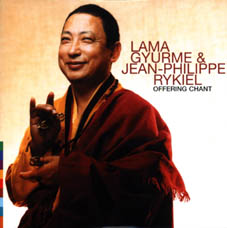 Siddhartha Gautam, aka Sakyamuni (the sage of the Sakyas), became a buddha around 2,500 years ago. Today, known as Buddha Purnima, the day of the full moon in May, is celebrated as his birthday. Here’s the Chinese singer Imee Ooi singing the Prajna Paramita Hridaya Sutra, aka The Heart Sutra. Listen.
Siddhartha Gautam, aka Sakyamuni (the sage of the Sakyas), became a buddha around 2,500 years ago. Today, known as Buddha Purnima, the day of the full moon in May, is celebrated as his birthday. Here’s the Chinese singer Imee Ooi singing the Prajna Paramita Hridaya Sutra, aka The Heart Sutra. Listen.
The maha-mantra of the Heart Sutra, “om gate, gate, para-gate, parasum-gate, bodhi svaha om”, appears around the 3:50 time stamp. Continue reading “Buddha Jayanti”


